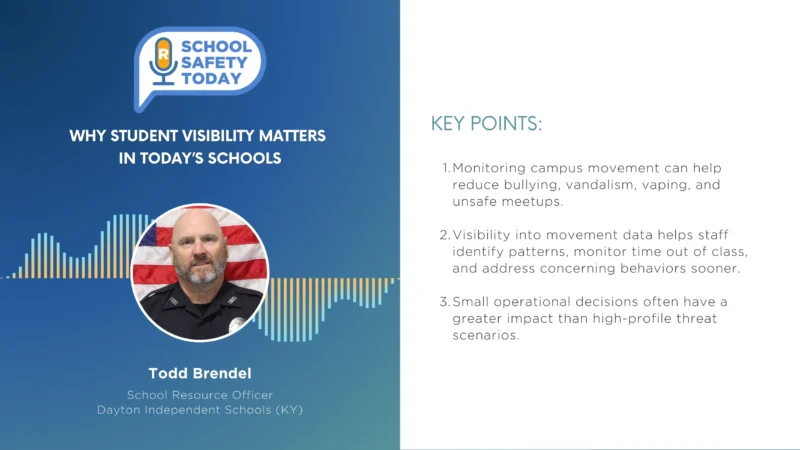How Technology Supports Relationships Between Teachers and Students
During the three years my colleagues and I spent researching our book Whole: What Teachers Need to Help Students Thrive, we investigated the unique success stories of schools that were “out-performing their zip code.” Often situated in poor neighborhoods, the one consistent element across these “success outliers” was a culture focused on social and emotional well-being, first for teachers and then for students.
Enter COVID-19 and an explosion of stress, emotional challenge, and a distance in space and time between teacher and student. Much of what we understood about schooling changed in a matter of days, including schools’ ability to connect with teachers and students in an emotional, caring, and personalized manner. Technology had to immediately fill the gap, and that need will continue.
One critical finding in Whole is the idea “Relationships are the oxygen for learning.” We know that students must first be ready to learn before they can consume new information, retain it and synthesize it. Technology has a critically important role to play in supporting the social-emotional well-being of teachers and students.
Achieving Technology Fluency
Researcher John Hattie’s work into Visible Learning found that combined teacher self-confidence and student self-confidence are among the most critical factors for learning. I’ve seen an example of this in Ysleta ISD in El Paso, Texas, which has a student body that is 92% Latinx, many of whom are from economically distressed families. The district has focused on creating teacher fluency in achieving a service approach, including a strong fluency in the use of technology. When students were suddenly working from home, teacher self-confidence and fluency in the use of technology was a critical component of connecting with students. Teachers used learning acceleration tools like the ACHIEVE3000 literacy platform woven into an ecosystem of connection through Microsoft and other tools.
At Ysleta and similar districts, teacher fluency in the use of a focused technology tool set is critical to supporting teacher mindset and self-confidence. The authors of Whole cataloged the implementation of that idea: teacher self-care includes allowing teachers the time and resources to become experts in using tools, and in how they use them. Effective teaching is not about one specific routine, but about the routine use of highly effective practices and tools to solve specific student needs.
Tools like Zoom and Microsoft Teams are a good example. These systems are now the foundational tools for communication and relationships between students and teachers. Teacher self-confidence in pivoting to online learning is enabled by knowing not just “how” the technology works but also in knowing “why and when” to use specific features and methods for best interaction.
For instance, in using an online platform, it is very important to use the video feature if at all possible. More than 90% of communication is non-verbal. Inability to see students is an inability to connect fully with students. Moreover, ensuring that teachers call on specific students to talk, give “points” for making comments in chat (and respond to them), and use breakout room features for small discussions transform a flat video-conference into a rich, collaborative learning experience.
Online Social-Emotional Support
On the cutting edge of technology innovation to support student and teacher social-emotional well-being is Rhithm, a new software platform to support teacher-student connection and self-regulation. This digital tool leads teachers and students through an efficient process that can be done daily in three minutes.
The Rhithm Assessment is an emoji-based, digital, “biopsychosocial” assessment that takes less than 1 minute, but provides powerful data on student and teacher mental, energy, emotional, physical, and social (MEEPS) states. It also includes space for free notes and journaling, providing a safe space for communication that keeps vital relationships strong across time and space.
As soon as the assessment is complete, an algorithm chooses and launches a video activity or lesson, customized according to the assessment answers. Self-regulation techniques, personal character-focused lessons, transition activities, and guided movement challenges are automatically provided to the student, based upon their individual need at the moment.
Dashboards give teachers, administrators, and school counselors the ability to view trends in school-wide social-emotional health, including customizable risk alerts.
Earlier this year, Rhithm partnered with MeTEOR Education to provide the solution at no cost to schools facing the transition to crisis teaching with students at home. The technology exploded to districts across the country. The ability to “see” into how students were feeling and offer them practical strategies for self-reflection and “centering” has become step one in the new blended home-to-school learning process. Indeed, principals can support teachers by better understanding the teacher mindset and social-emotional status as well.
Students working in small spaces at home, or sitting for long periods of time, have been “activated” by short Rhithm movement videos. I now coach corporate and school teams to begin every conference call by standing up, stretching, and moving. Spending five minutes moving will exponentially improve the value of the meeting.
Technology tools can help adults and students to develop self-awareness of their own triggers, and the “fight or flight” response. These tools support self-regulation and monitoring, while creating more effective platforms for teaching and learning relationships separated by space and time. The heart must be ready to learn before the mind engages. Teacher and student social-emotional well-being should be a priority when considering technology tools for the classroom.
Kevin E. Baird serves as chairman at the non-profit Center for College & Career Readiness. He is a recognized leader in the application of technology for accelerated human learning and development. He provides free tools for schools at Habitat4Heroes.org and is a co-host of the weekly webcast Soul Fud, which offers music, education experts, inspirational guests, and tips for mental well-being and movement while working.







